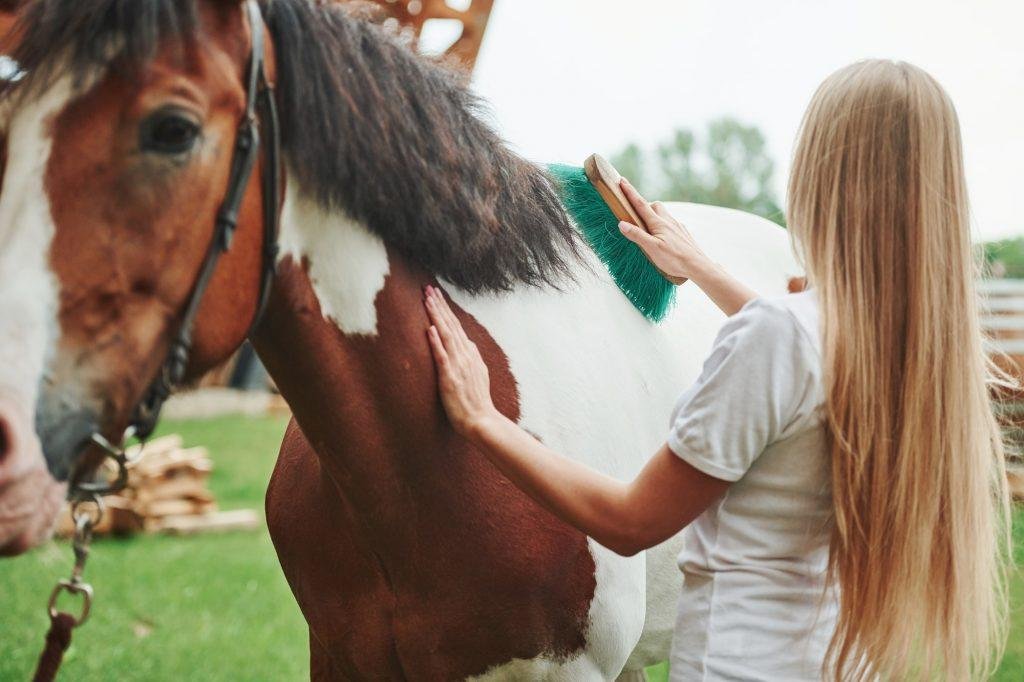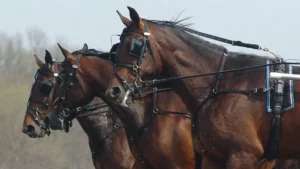
Yes, even racehorses can suffer from hair loss! It’s a very common condition that is always cause for concern but can simply be due to the horse rubbing an area of irritation. The wonderful shine you see in a horse’s coat is a sure sign of inner health. Occasionally, there can be minor nicks that spoil the perfection, but when areas of a horse’s hair are missing, it’s time for action. Hair loss causes can be frustrating to diagnose and manage effectively.
Hair loss is a sign of a medical problem, not a disease in itself. With an external cause, it can show as a patch of dry skin which slowly turns into a bald spot. It can have a simple explanation, but the underlying problem needs to be determined so it can be treated successfully. In the case of a racehorse, it’s more likely to be a worrying health condition.
Common Causes Of Equine Hair Loss
Many different things can cause hair loss, with the most common being parasites, insects and bacterial infections. It’s critical to find out if the cause is external or internal. For instance, insect bites can cause sores and aggravate the horse so much they can rub themselves bald trying to get relief. However, there can be many common causes, including:
- Malnutrition or poor diet
- Seasonal hair loss
- Some medications
- Rain rot (dermatophilosis)
- Various allergies
- Ringworm (dermatophytosis)
- Fungal infections
- Auto-immune diseases
How Horses Are Diagnosed And Treated
It’s essential to seek the help of a veterinarian who will go over the horse’s medical background and perform an in-depth physical exam. Most vets will also perform a skin biopsy and scrape on the bald area to identify what’s wrong. A small punch of the tissue is taken through all the layers of skin so that a proper diagnosis can be made and the source of the hair loss found.
Treatment of hair loss will obviously depend on the results of the examination and diagnostic tests. Unlike humans, hair transplant procedures are not an option, so it’s important to have any horse seen by a veterinarian each year, even if they appear healthy.
If there is a common cause such as seasonal hair loss or pregnancy, there will not be a medical treatment plan. Horses may simply be given diet supplements as this type of hair loss is normally only temporary.
Recovery Prognosis Of Hair Loss In Horses
In the vast majority of cases, horses will make a full recovery by following the planned treatment. Lost hair will usually start to grow back within weeks, and the long-term prognosis is extremely good. They will require follow-up veterinary visits, progress monitoring and regular diagnostic tests to ensure a full and healthy recovery.
Some horses are, unfortunately, diagnosed with a serious autoimmune disease that has caused the hair loss. These horses will need lifetime medication and care. They will also require ongoing visits to check on medication levels and possible side effects and to monitor their overall health condition.




